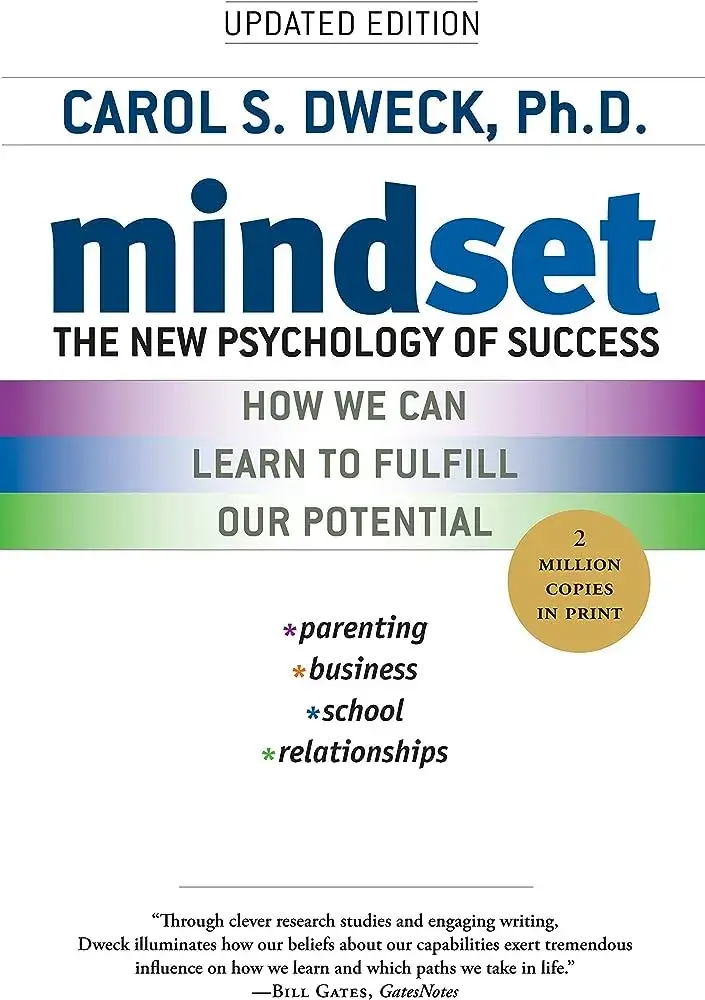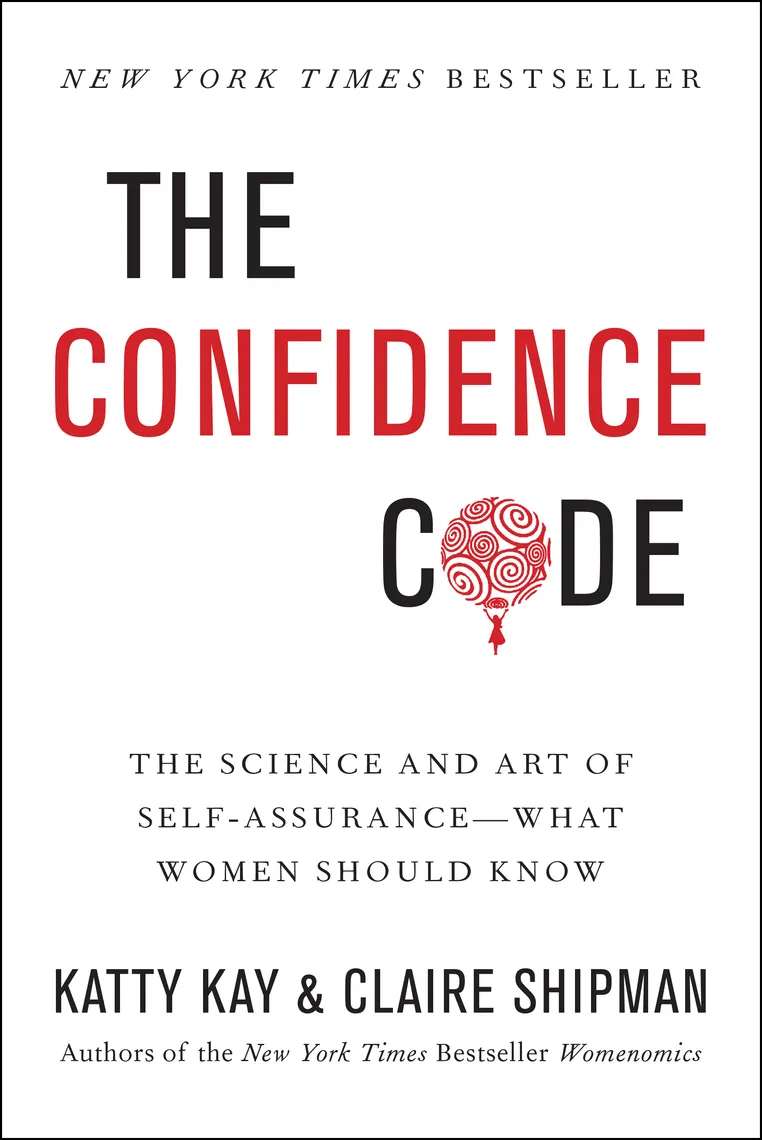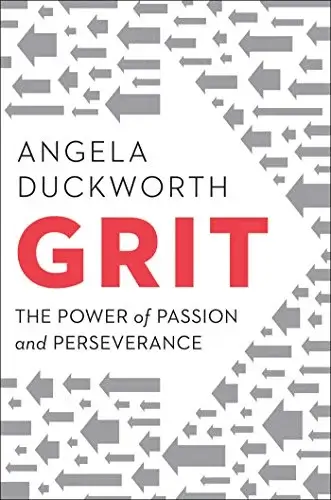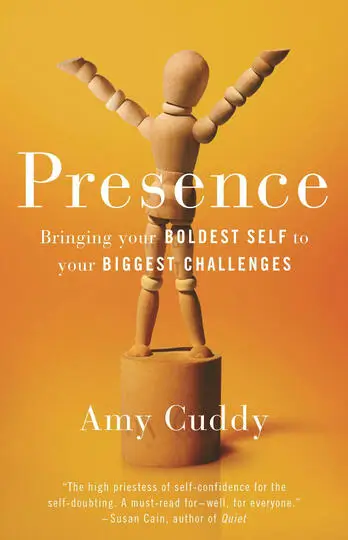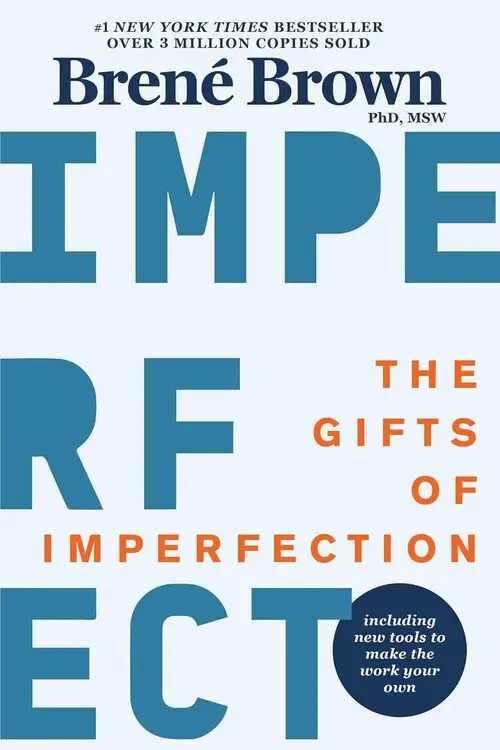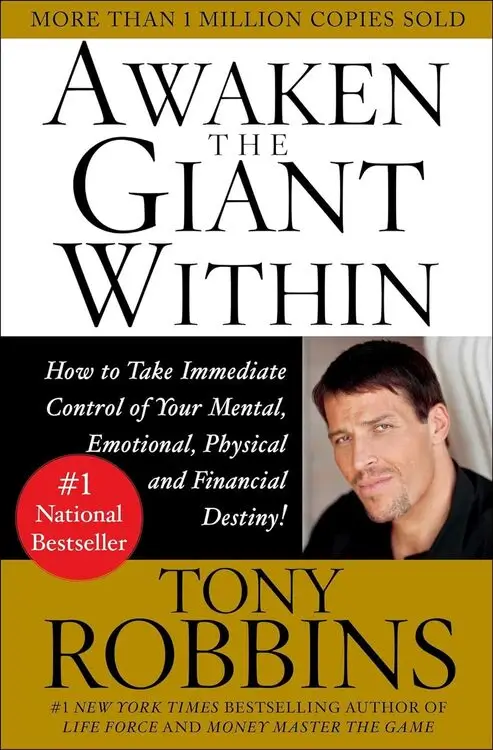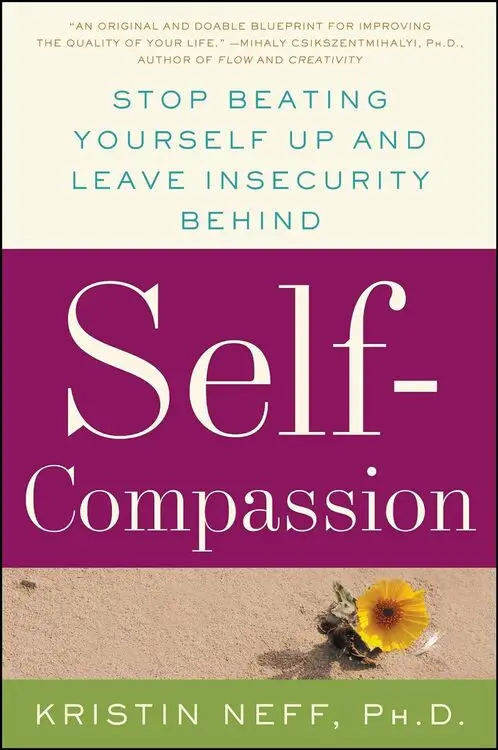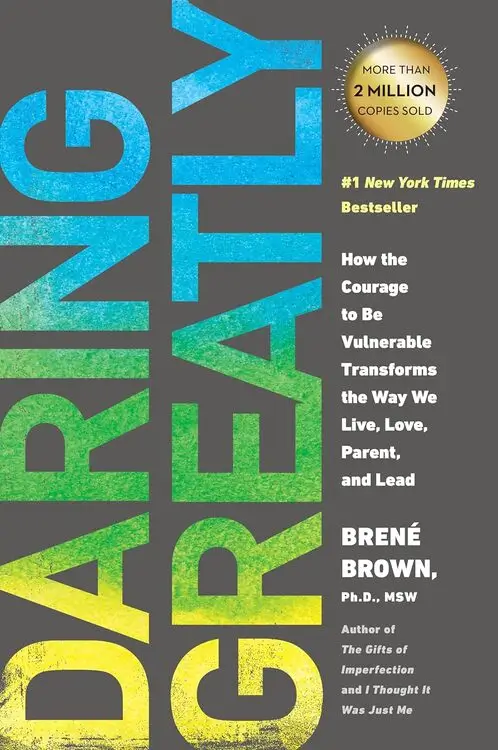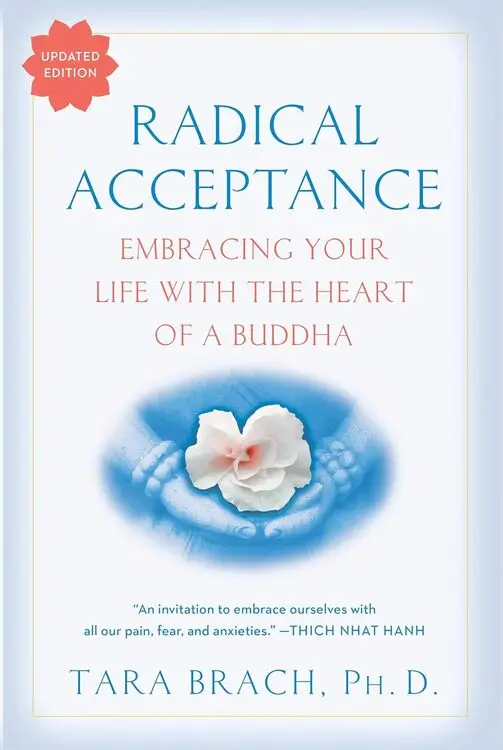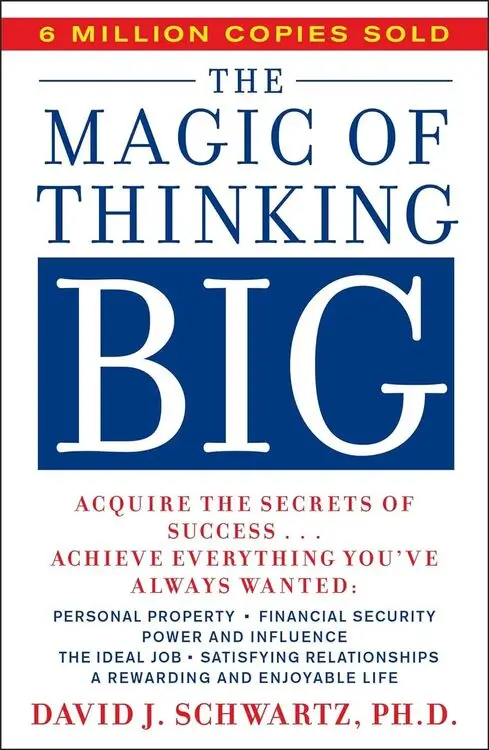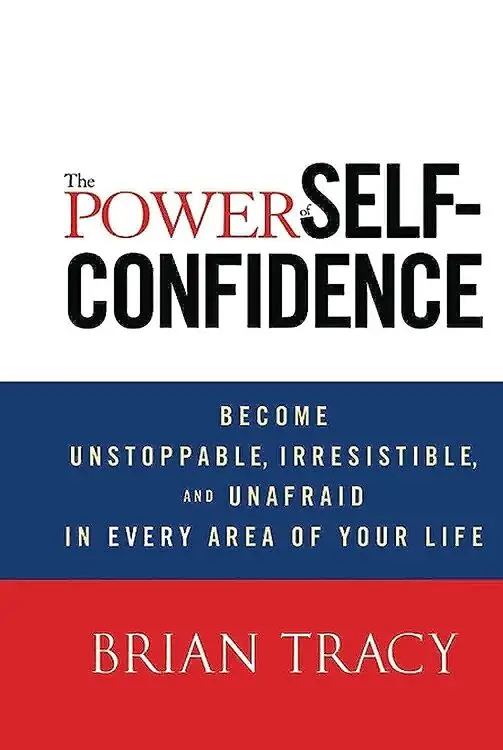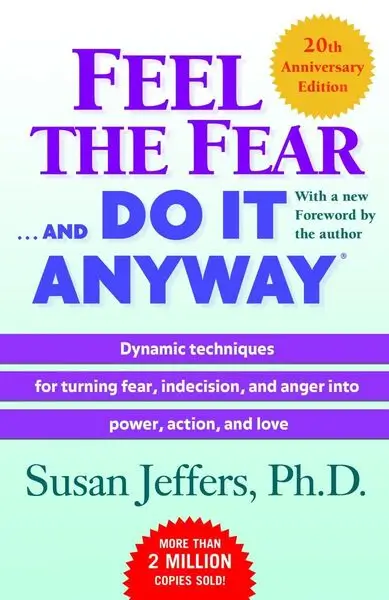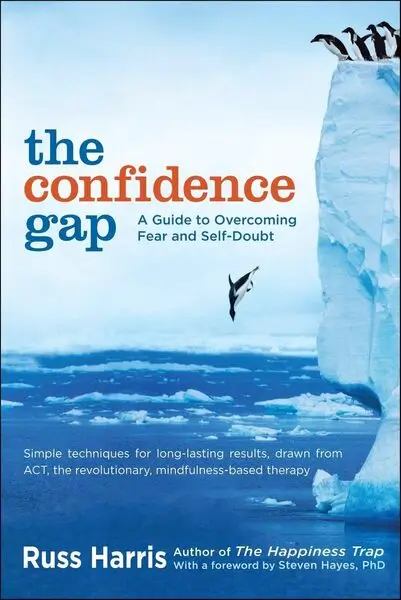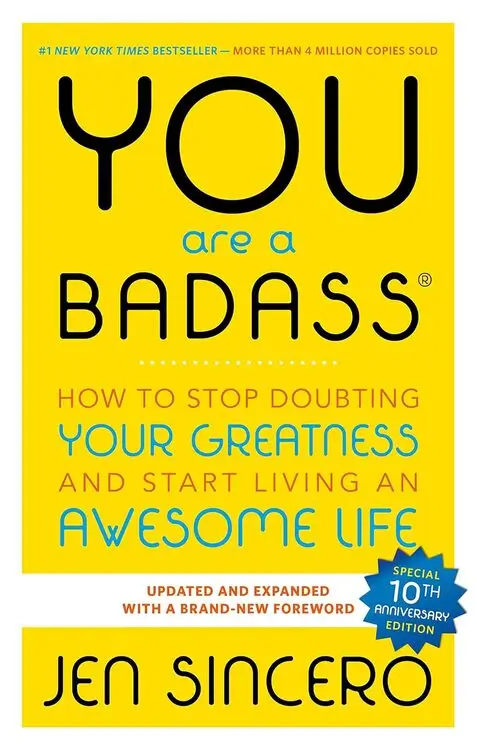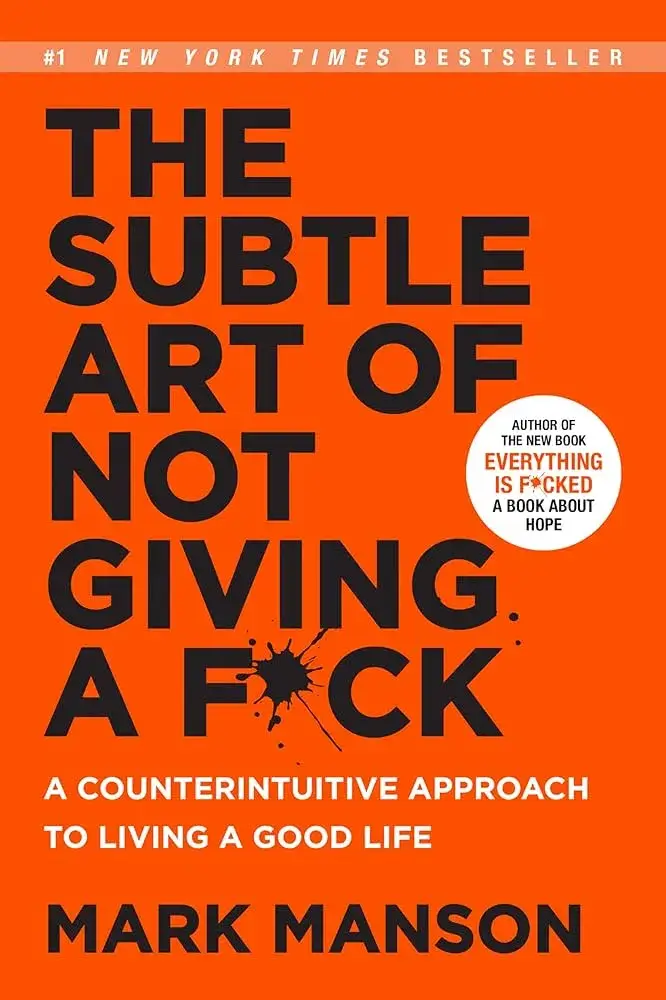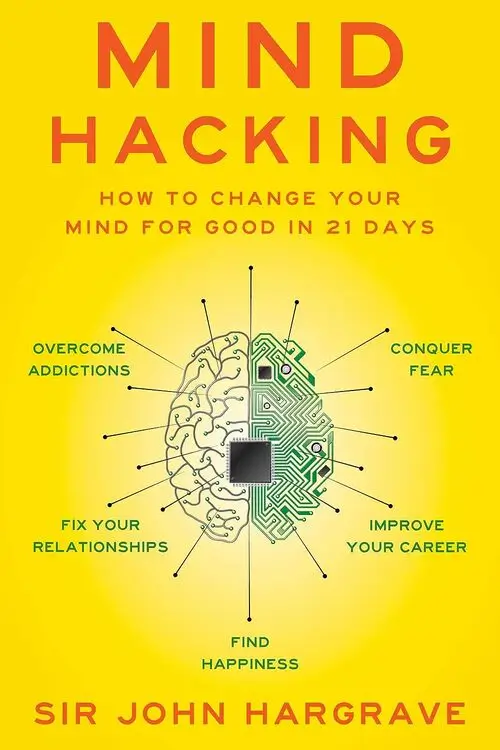We often find ourselves facing self-doubt and insecurity, which will overshadow our potential, thinking we will fail even before we start following the goal.
Self-confidence and self-love are essential to unlocking opportunities, enhancing our relationships, and empowering us to face life challenges with resilience and determination.
That’s why we’re going to delve into the best books for self confidence and self love. These books are specifically crafted to give you a sense of empowerment, enhance your self worth, reinforce your faith in yourself and guide you towards becoming the version of yourself.
Disclaimer: This selection of books are ranked based on building self-confidence, evaluations from online reviews, and our personal judgments. If you purchase any of the books, we will receive a small commission, without any extra cost to you.
1. Mindset: The New Psychology of Success
This book presents an idea for personal development. It offers guidance backed by scientific research and enriched with inspirational anecdotes.
However, at times, it may seem repetitive. Could benefit from further exploration in certain areas. It would also be valuable to address any criticisms of the growth mindset concept in more detail.
Nevertheless it remains a read, for individuals interested in self improvement and personal growth.
| Pros | Cons |
|---|---|
| 1. Eye-opening concept | 1. Repetition |
| 2. Practical advice | 2. Lack of depth |
| 3. Scientific foundation | 3. Overemphasis on success stories |
| 4. Inspiration | 4. Simplistic solutions |
| 5. Applicability | 5. Applicability challenges |
| 6. Accessible writing style | |
| 7. Positive impact on personal growth | |
| 8. Can improve relationships |
2. The Confidence Code
This book thoroughly examines the topic of confidence backed by research and insights from experts. It offers techniques for cultivating confidence and tackles common obstacles like self doubt and imposter syndrome.
Although the book is well organized and inspiring, it mainly emphasizes the experiences of women, which may only partially resonate with specific readers.
A few readers might perceive the content as repetitive. Seek more extensive strategies. Nevertheless, it remains a resource for individuals seeking to comprehend and enhance their confidence levels.
| Pros | Cons |
|---|---|
| 1. Research-Based | 1. Limited Scope |
| 2. Practical Tips | 2. Overemphasis on Gender |
| 3. Empowering | 3. Repetition |
| 4. Real-Life Examples | |
| 5. Gender Perspective | |
| 6. Accessible Writing Style |
3. Grit: The Power of Passion and Perseverance
This book thoroughly examines the concept of grit and how it contributes to accomplishing long-term objectives. It is supported by research. Provides practical strategies for cultivating grit although it may not primarily emphasize building self confidence.
Certain readers may perceive the content as reliant on anecdotal evidence and seek more tangible advice for boosting self-assurance.
Nevertheless, the book offers perspectives on the characteristics and mindset of high achievers, which can indirectly influence personal growth and self-confidence.
| Pros | Cons |
|---|---|
| 1. Compelling Concept | 1. Repetition |
| 2. Evidence-Based | 2. Simplistic |
| 3. Inspiring | 3. Limited Scope |
| 4. Practical Advice | |
| 5. Diverse Examples | |
| 6. Accessible Writing Style | |
| 7. Applicability |
4. Presence: Bringing Your Boldest Self to Your Biggest Challenges
This book delves into the idea of presence. How can it boost confidence and help us overcome challenges? It offers strategies supported by scientific research, although some readers might feel it could benefit from more in-depth analysis and rigor.
There has been some criticism and controversy surrounding the book’s focus on power poses, as their effectiveness may vary depending on the individual and the situation. While it presents an approach to developing confidence, it could explore the multifaceted nature of self confidence.
Nevertheless, the book offers insights into the significance of nonverbal communication and body language when projecting confidence. It has the potential to inspire readers to experiment with these concepts in their lives.
| Pros | Cons |
|---|---|
| 1. Empowering Concept | 1. Some readers may find the concepts abstract |
| 2. Research-Based | 2. Limited focus on certain aspects of presence |
| 3. Practical Tips | 3. Criticism of some of the research findings |
| 4. Personal Stories | |
| 5. Accessible Writing Style |
5. The Gifts of Imperfection
The book encourages self-acceptance and embracing vulnerability. It offers practical strategies for personal development and empowerment, presented in an accessible writing style.
However, some readers may find the concepts a bit abstract, and the book could be seen as clinical or therapeutic, which may not appeal to everyone seeking a more action-oriented self-help approach.
| Pros | Cons |
|---|---|
| 1. Encourages Self-Acceptance | 1. May not resonate with readers who prefer a more action-oriented self-help approach |
| 2. Vulnerability Embrace | 2. Some may find the concepts too abstract |
| 3. Practical Strategies | 3. Could be seen as clinical or therapeutic, which might not be what all readers are looking for |
| 4. Empowering | |
| 5. Personal Development | |
| 6. Accessible Writing Style |
6. Awaken the Giant Within
This guide covers a range of topics in personal growth, including building self-confidence. It offers strategies and exercises based on real-life stories and examples.
However, some readers might feel that the book is quite long, and its enthusiastic tone can be overwhelming. Critics argue that it oversimplifies psychological concepts and lacks scientific rigor. Moreover, its effectiveness in boosting self-confidence may vary depending on the individual and situation.
Nevertheless, the book provides insights into the significance of mindset and belief systems when it comes to achieving success and personal development. These insights can be motivating for readers.
| Pros | Cons |
|---|---|
| 1. Motivational | 1. Lengthy |
| 2. Practical Strategies | 2. Overwhelming |
| 3. Personal Development | |
| 4. Real-Life Examples | |
| 5. Comprehensive | |
| 6. Accessible Writing Style |
7. Self-Compassion: The Proven Power of Being Kind to Yourself
This book thoroughly explores the concept of self-compassion and how it can affect one’s confidence and emotional well-being. It is supported by research and provides practical strategies for cultivating self compassion.
However, some readers might perceive the content as scholarly and focused on research rather than directly addressing self confidence as its primary focus. The impact of self compassion on boosting self confidence may vary depending on circumstances.
Nevertheless, the book offers insights into the intricate nature of self confidence and its connection to self compassion.
| Pros | Cons |
|---|---|
| 1. Promotes Self-Compassion | 1. May not resonate with readers who prefer a more traditional self-help approach |
| 2. Evidence-Based | 2. Focuses primarily on the concept of self-compassion, potentially leaving out other aspects of personal development |
| 3. Practical Strategies | 3. Some readers may find the content repetitive |
| 4. Scientific Foundation | |
| 5. Empowering | |
| 6. Accessible Writing Style |
8. The Art of Possibility
This book offers an imaginative take on personal growth and building self assurance. It urges readers to adopt a mindset of openness and creativity.
Nevertheless, it might benefit from presenting a step by step approach to developing self confidence as some readers might be looking for more tangible guidance. The abstract and philosophical nature of the book may not resonate with everyone and its effectiveness in boosting self assurance might differ depending on circumstances.
However, it provides insights into the influence of perception and mindset, on shaping ones life inviting readers to explore their own creative capacities.
| Pros | Cons |
|---|---|
| 1. Inspiring and Creative | 1. Not a traditional self-help book |
| 2. Transformational Mindset | 2. May not appeal to those seeking strictly practical advice |
| 3. Unique Perspective | 3. Some readers might find the style and concepts too abstract |
| 4. Practical Exercises | |
| 5. Real-Life Examples | |
| 6. Engaging Writing Style |
9. Daring Greatly
The book explores the concept of vulnerability: how it contributes to personal growth and self assurance. It urges readers to view vulnerability as a strength and presents strategies for developing resilience.
However, the book’s primary focus on vulnerability and emotions might not resonate with everyone. It may need to provide a step by step guide for building self confidence.
Nonetheless, it offers insights into the connection between shame, self worth and self confidence. It also encourages readers to take steps, towards personal growth.
| Pros | Cons |
|---|---|
| 1. Empowering Message | 1. May not resonate with readers who prefer a more traditional self-help approach |
| 2. Vulnerability Embrace | 2. Some readers might find it too focused on vulnerability without addressing other aspects of personal development |
| 3. Research-Based | 3. Requires readers to confront their own vulnerability, which can be challenging |
| 4. Practical Advice | |
| 5. Personal Anecdotes | |
| 6. Engaging Writing Style |
10. The Four Agreements
This particular book provides a valuable approach to personal development and self improvement. It presents four principles to elevate self assurance although some readers might perceive them as overly simplistic.
The spiritual and philosophical aspects of the book may not resonate with every reader. Does it provide an extensive step by step guide for cultivating self confidence.
Nevertheless, it grants perspectives on the influence of our self perception and beliefs fosters a sense of personal accountability and advocates, for individual freedom and emotional well being.
| Pros | Cons |
|---|---|
| 1. Simple and Powerful Principles | 1. Some may find the spiritual elements too abstract or not applicable |
| 2. Easy to Understand | 2. Limited in scope – primarily focuses on these four agreements |
| 3. Applicable in Daily Life | 3. May not provide enough depth for readers seeking in-depth personal development |
| 4. Promotes Personal Freedom | |
| 5. Quick Read | |
| 6. Offers a New Perspective |
11. Radical Acceptance
This perspective offers a take on the importance of accepting oneself and how it contributes to personal growth and self compassion. It provides techniques for cultivating a mindset of radical acceptance although it may not provide a specific step by step guide for building self assurance.
Some readers might not resonate with the philosophical elements of the book as its emphasis on mindfulness and meditation may not suit those who prefer a more pragmatic or behavioral approach to boosting self confidence.
However, it imparts insights into the impact of self judgment and inner dialogue, on shaping ones sense of confidence. It encourages readers to embrace self acceptance while letting go of self criticism.
| Pros | Cons |
|---|---|
| 1. Promotes Self-Acceptance | 1. May not resonate with readers who prefer a more structured or action-oriented |
| 2. Compassion-Based Approach | 2. Some readers may find the concepts too abstract or spiritual |
| 3. Emphasizes Mindfulness self-help approach | 3. Might not provide concrete solutions for specific personal challenges |
| 4. Practical Exercises | |
| 5. Engaging Writing Style | |
| 6. Addresses Inner Turmoil |
12. The Magic of Thinking Big
This guide offers advice on personal growth and boosting self esteem. It presents enduring principles for cultivating a mindset and offers actionable techniques for building self confidence.
While a few readers might perceive the content as outdated and the writing style as straightforward the book provides perspectives on the influence of positive thinking and inspires readers to have faith in their abilities. However it may not offer a roadmap, for overcoming individual confidence hurdles or delve deeply into the intricacies of self assurance.
| Pros | Cons |
|---|---|
| 1. Empowering Mindset | 1. Some readers may find it too simplistic or lacking in depth |
| 2. Practical Advice | 2. Overemphasis on positivity without addressing potential challenges |
| 3. Positive Thinking | Techniques 3. Not all strategies may be applicable in all situations |
| 4. Motivational | |
| 5. Timeless Wisdom | |
| 6. Accessible Writing Style |
13. The Power of Self-Confidence
This guide is an focused resource that specifically tackles the topic of self confidence. It provides an exploration of self confidence and offers actionable strategies to build and improve it.
Although some parts of the content may seem repetitive and not groundbreaking the book offers insights into the importance of believing in oneself. It also encourages readers to take ownership of their confidence and strive for success.
However it might not delve deeply into the complexities of self confidence. Provide extensive strategies, for overcoming specific challenges related to confidence. The effectiveness of boosting self confidence may vary depending on individuals and different situations.
| Pros | Cons |
|---|---|
| 1. Self-Confidence Building | 1. Some readers may find it repetitive |
| 2. Practical Strategies | 2. Overlaps with other self-help literature |
| 3. Action-Oriented | 3. Focuses primarily on confidence, not addressing broader personal development aspects |
| 4. Personal Development | |
| 5. Accessible Writing Style |
14. Feel the Fear and Do It Anyway
This book is about conquering fear and developing self assurance. It presents techniques and a step by step approach to dealing with fears and taking action despite them.
While some readers might feel that the content is a bit repetitive and follows a formula the book offers insights into the importance of believing in oneself. It also encourages readers to confront their fears with confidence.
However it may not delve deeply into the complexities of self assurance. Provide extensive strategies for overcoming specific challenges related to self confidence. Its effectiveness, in boosting self assurance may vary depending on individuals and different situations.
| Pros | Cons |
|---|---|
| 1. Encourages Facing Fears | 1. Some readers may find it overly simplistic |
| 2. Practical Strategies | 2. The concept may not resonate with everyone |
| 3. Empowering Mindset | 3. Critics argue it lacks depth |
| 4. Motivational | |
| 5. Action-Oriented | |
| 6. Accessible Writing Style |
15. The Confidence Gap
This particular book aims to bridge the gap between feeling uncertain and having confidence in oneself. It presents an evidence based approach to overcoming self doubt and enhancing self esteem.
While some readers might perceive the content as repetitive and find the writing style a bit the book offers valuable insights into the scientific aspects of self confidence and self doubt.
However it may not delve deeply into the aspects of self confidence or provide extensive strategies for overcoming specific challenges related to self assurance. The effectiveness of its methods, for boosting self confidence can vary depending on circumstances.
| Pros | Cons |
|---|---|
| 1. Addresses Confidence Challenges | 1. Some readers may find it too focused on cognitive-behavioral therapy techniques |
| 2. Practical Strategies | 2. Could be seen as clinical or therapeutic, which might not be what all readers are looking for |
| 3. Evidence-Based | |
| 4. Mindfulness Techniques | |
| 5. Self-Help Resource | |
| 6. Accessible Writing Style |
16. The 5 Second Rule
This book centers around an actionable idea called the “5 second rule” that helps conquer hesitation and cultivate self assurance. It presents real life examples. Encourages immediate action to break free from overthinking.
Although some readers might perceive the content as repetitive and the writing style as straightforward the book offers a powerful tool for enhancing self confidence. By taking charge and making changes in ones life it provides a means to boost self assurance. However it may not delve deeply into the aspects of self confidence or provide extensive strategies, for overcoming specific challenges related to self assurance.
| Pros | Cons |
|---|---|
| 1. Simple and Actionable | 1. Some may find the concept too simplistic |
| 2. Motivational Technique | 2. May not work equally well for all readers |
| 3. Empowering | 3. Critics argue it lacks scientific backing |
| 4. Practical Application | 4. Focuses primarily on a single technique, not a comprehensive self-help guide |
| 5. Self-Help Resource | |
| 6. Accessible Writing Style |
17. The Self-Esteem Workbook
This particular book delves into the topic of self esteem. Emphasizes its significance in cultivating self confidence. It offers an examination of the principles surrounding self esteem and presents practical methods for enhancing both self esteem and self confidence.
Although some readers might perceive the content as dense and the writing style academic in nature the book takes a focused and comprehensive approach to understanding self esteems impact on ones overall confidence. However it may not extensively explore the aspects of building self confidence or provide an extensive array of strategies, for overcoming specific challenges related to self assurance.
| Pros | Cons |
|---|---|
| 1. Comprehensive Self-Esteem Guide | 1. Workbook format might not suit all readers’ learning preferences |
| 2. Practical Exercises | 2. Some may find it too clinical or academic |
| 3. Evidence-Based Strategies | 3. Requires time and effort to complete the exercises |
| 4. Self-Help Resource | |
| 5. Accessible Writing Style | |
| 6. Addresses a Crucial Personal Issue |
18. You Are a Badass
This particular book centers around the idea of improving oneself fostering growth and cultivating self assurance. It adopts a motivational and empowering approach to instill a sense of confidence within individuals.
Although some readers might perceive the content as simplistic and lacking insight the book offers practical and implementable guidance for developing self confidence. It also emphasizes the importance of thinking and believing in oneself. However it may not delve deeply into the aspects of self confidence or provide exhaustive strategies for overcoming specific challenges related to building confidence.
| Pros | Cons |
|---|---|
| 1. Empowering Message | 1. Some readers may find it too focused on motivational clichés |
| 2. Motivational | 2. Critics argue it lacks depth |
| 3. Positive Thinking Techniques | 3. Could be seen as a bit simplistic |
| 4. Self-Help Resource | 4. May not resonate with everyone |
| 5. Accessible Writing Style | |
| 6. Personal Development |
19. The Subtle Art of Not Giving a F*ck
This book presents an unconventional viewpoint on self improvement and self assurance. It highlights the significance of embracing values while disregarding insignificant concerns.
Although certain readers might perceive the content as direct or uncompromising the book offers guidance for cultivating self confidence. It also promotes self awareness and self acceptance. However it may not delve deeply into the facets of self assurance or provide extensive strategies, for overcoming specific challenges related to confidence.
| Pros | Cons |
|---|---|
| 1. Blunt and Honest | 1. Strong language and bluntness may not be suitable for all readers |
| 2. Unconventional Approach | 2. Some may find the concepts too simplistic |
| 3. Promotes Personal Responsibility | 3. Critics argue it lacks depth |
| 4. Counter to Positive Thinking Trends | 4. Focuses primarily on what not to care about, not always providing clear guidance on what to care about |
| 5. Engaging Writing Style | |
| 6. Personal Development |
20. Mind Hacking
This book primarily explores methods to enhance ones self confidence and mindset. It presents a structured and methodical approach to improving mental well being offering practical strategies to transform negative thinking patterns.
Although a few readers might Consider the content repetitive and the writing style somewhat dull the book provides an organized framework for developing self assurance. However it might not delve deeply into the facets of self confidence or provide comprehensive tactics for overcoming specific self esteem hurdles.
| Pros | Cons |
|---|---|
| 1. Offers Practical Mindfulness Techniques | 1. Some may find the book’s title and content to be overly sensationalized |
| 2. Accessible Writing Style | 2. Not all readers may resonate with the author’s humor and writing style |
| 3. Mindfulness Exercises | 3. Critics argue that it doesn’t offer deeply original insights |
| 4. Personal Development | |
| 5. Applicable in Daily Life | |
| 6. Promotes Self-Improvement |


